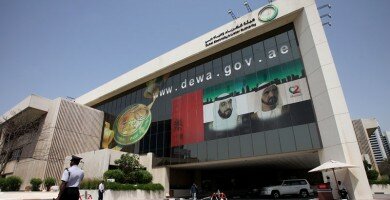Dubai Will Use Google Glass To Find Faults At Power Stations

A couple of days ago we told you about Dubai’s police decision to equip its traffic enforcers with Google Glass devices, as a trial to see how useful Google’s wearable device can be. During the trial phase, traffic enforcers will wear Glass devices in order to stop traffic violations and easily identify potential suspects, given the fact that the Google Glass that will be used by them is going to feature a custom developed face recognition software that connects to the police’s online database. If the trial phase is going to be successful, Google Glass will most likely be adopted by police detectives too, not just traffic enforcers.
Well it seems that Google Glass is very popular in Dubai, as it is going to be used by the Dubai Electricity and Water Authority. Despite not being launched to regular consumers across the globe, Google Glass managed to find its way to many countries, the United Arab Emirates being one of them. It shouldn’t surprise anyone that UAE has the money to equip its police force with Glass (a wearable device that features a price tag of $1,500) as the UAE’s economy registered an impressive growth mainly thanks to oil and trade, transforming Dubai in one of the most luxurious cities in the world. And also a city that affords to use Google Glass in many fields of work.
The Dubai Electricity and Water Authority is going to rely on Google’s wearbale device to find faults at power stations. After Dubai traffic enforcers, it is now Dubai’s engineers to use Google Glass at work. Engineers from Dubai’s Electricity and Water Authority will be equipped with Google Glass devices that will feature a custom built app that allows them to easily detects faults at power stations and substations. If a fault is detected, the custom developed app will automatically send a notification to the authority’s Enterprise Resource Planning System. It is a very good example of automation that simplifies tasks in a crucial city system.
The notifications that Google Glass sends to the authority’s Enterprise Resource Planning System (via the custom built app) offer the location and a description of the fault, though in the future it is safe to assume that the custom app will be extended to include more details in the notifications and maybe even new features. Moza Al Akraf, acting chief information officer of the authority said in an interview: “Dewa has realised the effective role of smart apps in providing reliable high-quality services [...] This supports its plans that keep pace with the ongoing development of smart services in the UAE and the vision of our wise leadership.” The way the Dubai Electricity and Water Authority uses Google Glass is very interesting and also innovative and can be seen as proof of Google Glass’ versatility.What do you think about DEWA’s innitiative to equip its engineers with Glass devices? Leave a comment in the dedicated section below.